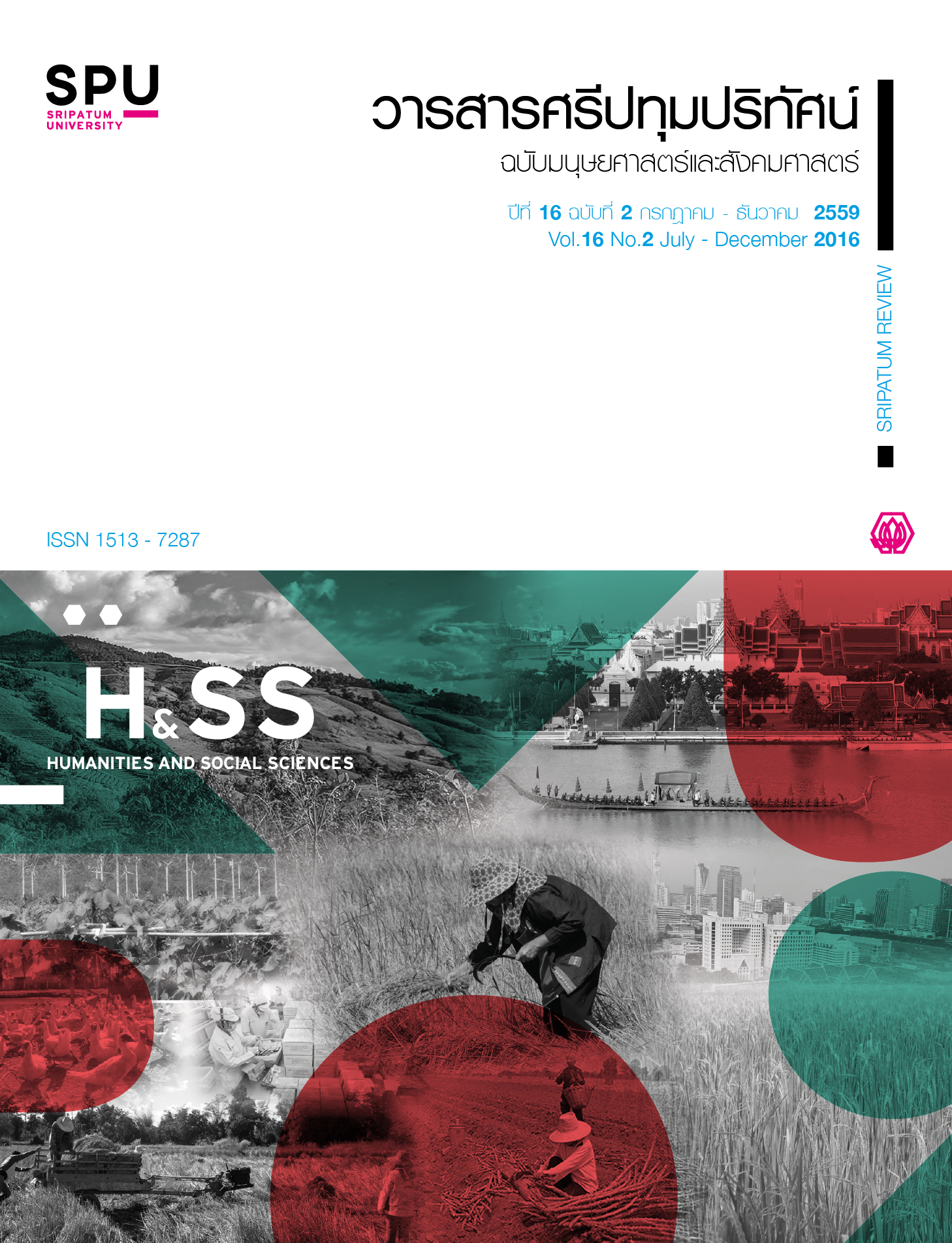THE DEVELOPMENT OF STRATEGIES FOR MANAGEMENT OF THE WORLD CLASS STANDARD ELEMENTARY SCHOOLS TO MEET THE THAILAND QUALITY AWARD CRITERIA
Main Article Content
Abstract
This study aimed to (1) analyze management situations of world class standard elementary schools based on the criteria of the Thailand Quality Award; (2) to develop strategies for management of the world class standard elementary schools to meet the criteria of the Thailand Quality Award; and (3) to monitor and verify quality of the strategies for management of the world class standard elementary schools to meet the criteria of the Thailand Quality Award. This study employed both the quantitative and qualitative research methods. Several groups of research sample were employed as follows: the group of questionnaire respondents consisted of 92 directors of world class standard elementary schools; the group of schools for examining of good practice consisted of five world class standard elementary schools selected as case studies; the group of experts for verification of the first draft of strategies consisted of 20 experts; and the group of experts for verification of the final version of strategies consisted of 12 experts. The quantitative data were analyzed using descriptive statistics and priority ranking of the needs based on PNI modified technique; while qualitative data were analyzed with content analysis. The research findings are as follows: (1) the overall management situation of the world class standard elementary schools based on the criteria of the Thailand Quality Award was rated at the high level; when specific aspects of management were considered, it was found that all specific aspects were rated at the high level and can be ranked as follows: the top aspect was the organizational leadership, to be followed by the output and the strategic planning; while the aspect receiving the lowest rating mean was that of focusing on the personnel; and (2) the nine main strategies and 36 practice guidelines developed for management of the world class standard elementary schools to meet the Thailand Quality Award criteria include the following: the first strategy is the strategy for creating transformational leaders; the second strategy is that for mobilizing the manpower and resources; the third strategy is that for encouraging participation; the fourth strategy is that for creating awareness; the fifth strategy is that for fostering professional teachers; the sixth strategy is that for team working; the seventh strategy is that for building the organizational culture; the eighth strategy is that for development of innovations and information technology; and the ninth strategy is that for development of learner quality; and (3) the quality of the strategies for management of the world class standard elementary schools to meet the Thailand Quality Award criteria was rated high in terms of appropriateness, relevancy, feasibility, and benefits.
Article Details
1. กองบรรณาธิการสงวนสิทธิ์ในการพิจารณาและตัดสินการตีพิมพ์บทความในวารสาร
2. บทความทุกเรื่องจะได้รับการตรวจสอบทางวิชาการโดยผู้ทรงคุณวุฒิ แต่ข้อความและเนื้อหาในบทความที่ตีพิมพ์เป็นความรับผิดชอบของผู้เขียนแต่เพียงผู้เดียว มิใช่ความคิดเห็นและความรับผิดชอบของมหาวิทยาลัยศรีปทุม
3. การคัดลอกอ้างอิงต้องดำเนินการตามการปฏิบัติในหมู่นักวิชาการโดยทั่วไป และสอดคล้องกับกฎหมายที่เกี่ยวข้อง
References
เกรียงศักดิ์ เจริญวงศ์ศักดิ์. (2550, July 12).แนวโน้มการศึกษาไทยในครึ่งทศวรรษหน้า”ฉบับอิเล็กทรอนิกส์.
เฉลิม สุขนันท์. (2549). การบริหารจัดการโรงเรียนสู่ความเป็นเลิศแบบก้าวกระโดดด้วยการเทียบเคียงสมรรถนะตามแนวรางวัลคุณภาพแห่งชาติทางการศึกษาของโรงเรียน บ้านคลองข่อย อำเภอสว่างอารมณ์ จังหวัดอุทัยธานี. วิทยานิพนธ์ครุศาสตร์มหาบัณฑิต สาขาการบริหารการศึกษา มหาวิทยาลัยราชภัฏนครสวรรค์.
ชนิกานต์ ถาวรยุติกานต์. (2550). การบริหารคุณภาพทั่วทั้งองค์กรตามแนวคิดของ Malcolm Baldrige กรณีศึกษาเทศบาลนครนนทบุรี. วิทยานิพนธ์รัฐประศาสนศาสตร์ มหาวิทยาลัยมหิดล.
ธนิก คุณเมธีกุล. (2552). การพัฒนาตัวบ่งชี้คุณภาพการบริหารการศึกษาเพื่อความเป็นเลิศของสถานศึกษาเอกชน. “ วิทยานิพนธ์ครุศาสตรดุษฎีบัณฑิต สาขาการบริหารการศึกษา จุฬาลงกรณ์มหาวิทยาลัย.
พันธ์ศักดิ์ พลสารัมย์. (2540). การพัฒนากระบวนการบริหารงานสถาบันอุดมศึกษาตามแนวคิดการบริหารงานแบบมุ่งคุณภาพทั้งองค์กร: กรณีศึกษาจุฬาลงกรณ์มหาวิทยาลัย. วิทยานิพนธ์ครุศาสตร์ดุษฎีบัณฑิตบริหารการศึกษา จุฬาลงกรณ์มหาวิทยาลัย.
Fidler , Brian. (2002). Strategic Management for School Development. London. Chapman Publishing.
Owens, R.G. (2001). Organizational behavior in education : Instructional leadership and school reform.
Bacon. Skipper, S. (2006). Conceptual framework for effectible Inclusive schools,. Retrieved 2009, 10 June.
Ulrich, D., et.al, (1991). Employee and customer allayment : Synergies for competitive advantages. Human resource planning. University of Maryland.


